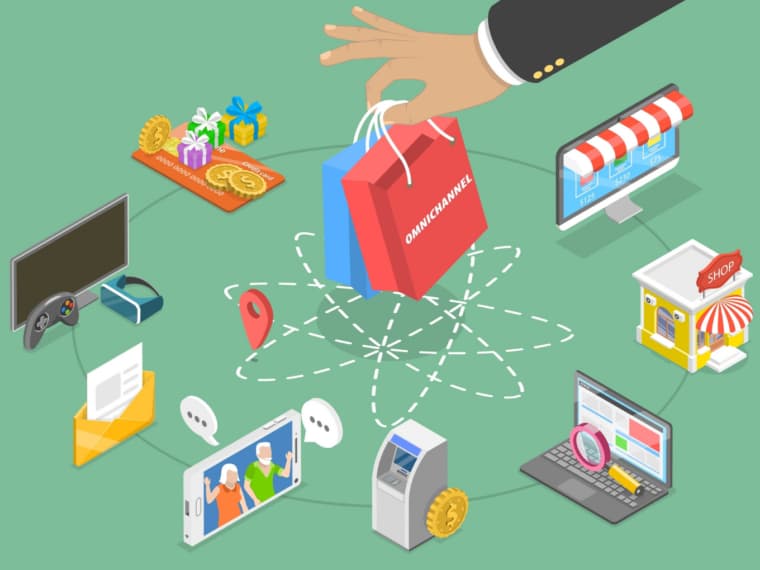The direct-to-consumer revolution has fundamentally transformed how brands connect with their customers, and technology stands at the heart of this dramatic shift. What began as a simple concept of bypassing traditional retail intermediaries has evolved into a sophisticated ecosystem powered by cutting-edge technologies that enable unprecedented levels of personalization, engagement, and operational efficiency.
The global D2C e-commerce market is experiencing explosive growth, with projections indicating it will reach $175.4 billion by 2025, maintaining a remarkable compound annual growth rate of 27.8%. This meteoric rise isn’t merely about changing distribution channels—it represents a fundamental reimagining of how businesses leverage technology to create direct, meaningful relationships with consumers. In India alone, the D2C market presents a staggering $300 billion opportunity by 2030, driven by increasing internet penetration, smartphone adoption, and a growing base of 190 million digital shoppers who demand convenience, transparency, and innovative products.
The technological backbone enabling this transformation encompasses artificial intelligence, machine learning, social commerce platforms, headless commerce architectures, and predictive analytics. These technologies aren’t just supporting D2C brands—they’re actively reshaping consumer expectations and creating entirely new paradigms for digital-first companies. As traditional retail models give way to more agile, technology-driven approaches, D2C brands are positioned to capitalize on the convergence of digital innovation and evolving consumer preferences, creating sustainable competitive advantages through direct customer relationships and data-driven insights.
The Technology Stack Powering D2C Success

Artificial Intelligence and Machine Learning Revolution
The integration of artificial intelligence represents perhaps the most significant technological advancement in the D2C space. AI is transforming every aspect of the customer journey, from initial discovery to post-purchase engagement. Modern D2C brands leverage AI-powered platforms such as Klaviyo and Bloomreach to create hyper-personalized experiences that adapt to individual consumer preferences and behaviors in real-time.
Machine learning algorithms analyze vast amounts of first-party data to predict future purchases, optimize inventory management, and automate customer service through intelligent chatbots and virtual assistants. This predictive commerce capability enables brands to anticipate consumer needs before they’re explicitly expressed, creating seamless shopping experiences that feel almost intuitive.
Headless Commerce Architecture
The adoption of headless technology has become crucial for D2C brands seeking omnichannel delivery capabilities. Unlike traditional monolithic e-commerce platforms, headless commerce separates the front-end presentation layer from the back-end functionality, enabling brands to deliver consistent experiences across multiple touchpoints through API-driven architectures.
This technological approach provides unprecedented flexibility for experimentation with user experiences without requiring complete platform overhauls. D2C brands can rapidly iterate on their digital storefronts, test new features, and adapt to changing consumer preferences while maintaining a unified content management system that feeds all customer touchpoints.
Social Commerce and Digital-First Strategies
The TikTok Shop Phenomenon
Social commerce has emerged as a dominant force in the D2C, with platforms like TikTok Shop representing 66% of all social sales. This shift toward social selling creates seamless shopping experiences where discovery, evaluation, and purchase occur within the same platform ecosystem. The viral nature of social media, exemplified by trends like #TikTokMadeMeBuyIt, demonstrates how D2C brands can achieve overnight success through strategic social media engagement.
The algorithmic product discovery capabilities of social platforms provide hyper-personalized recommendations based on user behavior and interests, often yielding superior conversion rates compared to traditional advertising methods. This represents a fundamental shift from follower-count-based influencer marketing to engagement and authenticity-focused strategies, with micro and nano influencers becoming increasingly valuable for their active, trust-based communities.
Video Commerce and Phygital Experiences
The future of D2C marketing increasingly revolves around video content, with nearly 80% of consumers expressing a preference for brands that offer video-based shopping experiences. This trend has given rise to phygital (physical + digital) commerce, where customers interact with products across both virtual and physical spaces, creating immersive shopping experiences that bridge the gap between online and offline retail.
Personalization at Scale Through Technology

First-Party Data Utilization
D2C brands possess a significant advantage through direct access to first-party customer data, enabling unprecedented levels of personalization. This valuable information allows brands to create bespoke products, experiences, and customer service interactions that traditional retail models cannot match. The ability to track and analyze customer behavior across the entire journey—from initial awareness through post-purchase engagement—provides insights that drive both immediate sales and long-term customer loyalty.
Generative AI for Content and Experience Creation
Generative AI has become a goldmine for personalization efforts, enabling D2C brands to create content faster, personalize at scale, and implement predictive recommendations that anticipate customer needs. This technology allows brands to generate product descriptions, marketing copy, and even visual content that resonates with specific customer segments, dramatically reducing the time and resources required for content creation while improving relevance and engagement.
Operational Excellence Through Technology
Smart Warehouse and Logistics Solutions
The technological revolution in D2C extends beyond customer-facing applications to include sophisticated backend operations. AI-powered warehouse solutions featuring autonomous robots for picking and packing, predictive inventory management, and optimized routing for last-mile delivery are transforming the operational efficiency of D2C brands.
These technologies enable brands to compete with established retail giants on delivery speed and reliability while maintaining the personalized touch that defines the D2C experience. The integration of smart logistics solutions with customer data platforms creates a seamless flow from order placement to delivery, with real-time tracking and communication enhancing customer satisfaction.
Quick Commerce Integration
The emergence of quick commerce platforms like Blinkit, Instamart, and Zepto has created new opportunities for D2C brands to reach consumers who expect instant gratification. The quick commerce market is projected to reach $5.38 billion in 2025, with an estimated 60.6 million users by 2029, representing a significant opportunity for D2C brands to leverage ultra-fast delivery capabilities.
The Indian D2C Technology

Digital Infrastructure and Market Dynamics
India’s D2C ecosystem has been particularly shaped by technological advancement, with internet penetration reaching 52% in 2024 and the addition of 125 million new online shoppers in just three years. The Indian government’s support through initiatives like the Open Network for Digital Commerce has democratized e-commerce access, reducing reliance on major platforms and enabling D2C brands to gain visibility and market access.
The presence of 90,239 live Shopify stores in India demonstrates the scale of technological adoption among D2C brands, while the integration with established marketplaces provides initial visibility before brands establish independent customer relationships.
Affiliate Marketing and Performance-Based Growth
Technology has enabled sophisticated affiliate marketing strategies that significantly reduce customer acquisition costs for D2C brands. Performance-based models ensure brands only pay for actual sales, optimizing marketing expenses and improving return on investment through real-time tracking and analytics capabilities.
Future Outlook and Emerging Technologies
The D2C technology continues to evolve rapidly, with emerging trends pointing toward even more sophisticated integration of AI, augmented reality, and blockchain technologies. The focus is shifting from simple direct sales to creating comprehensive digital ecosystems that encompass entertainment, education, and community building—what industry experts term “retailtainment”.
As the technology stack supporting D2C brands becomes more sophisticated, the competitive advantage increasingly lies not just in having access to these tools, but in how creatively and effectively brands integrate them to create unique, valuable customer experiences. The future belongs to D2C brands that can seamlessly blend technological innovation with authentic brand storytelling and genuine customer value creation.



